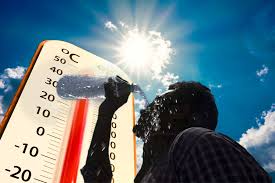Introduction
Excessive heat has become an increasingly common issue worldwide, largely due to climate change and the growing intensity of heat waves. High temperatures can affect anyone, but certain groups such as children, the elderly, and people with chronic illnesses are especially vulnerable. While excessive heat may seem like just a summer inconvenience, it can actually pose serious health risks if not taken seriously. Understanding these dangers and learning how to stay safe during extreme heat events is essential for protecting your health and well-being.
The Health Risks of Excessive Heat
Excessive heat can cause a wide range of health problems, from mild discomfort to life-threatening conditions. Some of the most common risks include:
Heat Exhaustion
Heat exhaustion occurs when the body loses too much water and salt through sweating. Symptoms include dizziness, fatigue, heavy sweating, nausea, and headache. Without proper treatment, it can progress to more severe conditions.
Heat Stroke
Heat stroke is the most dangerous heat-related illness. It happens when the body is no longer able to regulate its temperature, leading to rapid overheating. Symptoms include confusion, fainting, rapid pulse, and hot, dry skin. Heat stroke is a medical emergency and requires immediate attention.
Dehydration
When the body loses more fluids than it takes in, dehydration occurs. Even mild dehydration can cause headaches, fatigue, and reduced concentration, while severe dehydration can damage vital organs.
Worsening of Chronic Conditions
People with conditions such as heart disease, diabetes, or respiratory problems may find their symptoms worsen in extreme heat. High temperatures place added strain on the cardiovascular and respiratory systems.
Who Is Most at Risk
While anyone can be affected by excessive heat, certain groups are more vulnerable:
-
Older adults whose bodies may not regulate temperature as effectively
-
Infants and young children who rely on adults to keep them hydrated and cool
-
Outdoor workers and athletes exposed to direct sunlight for extended periods
-
People with chronic illnesses who may have reduced tolerance for heat stress
-
Low-income communities with limited access to air conditioning or safe cooling spaces
Tips to Stay Safe During Excessive Heat
Fortunately, there are several practical steps you can take to reduce the risks associated with excessive heat:
-
Stay hydrated: Drink plenty of water throughout the day, even if you are not thirsty.
-
Avoid direct sunlight: Limit outdoor activities during peak heat hours, usually between 10 a.m. and 4 p.m.
-
Wear light clothing: Loose, breathable fabrics help keep the body cool.
-
Use fans or air conditioning: Spend time in air-conditioned environments when possible.
-
Take cool showers or baths: These help lower body temperature quickly.
-
Check on vulnerable individuals: Ensure that elderly relatives, children, and neighbors are safe and hydrated.
-
Never leave children or pets in vehicles: Car interiors heat up rapidly and can become deadly within minutes.
Preparing for Heat Waves
Preparation is key to staying safe during heat waves. Keep a supply of bottled water, check that fans and air conditioning units are working properly, and stay updated with local weather alerts. Communities should also establish cooling centers where people without adequate home cooling can stay safe.
Conclusion
Excessive heat is more than just uncomfortable weather; it poses real and serious health risks. By understanding the dangers and adopting simple precautions, you can protect yourself and your loved ones during heat waves. Staying informed is also an important part of prevention. For reliable health updates and the latest information on wellness and safety, yeemanews.com provides valuable resources to help communities stay safe and healthy in all conditions.

